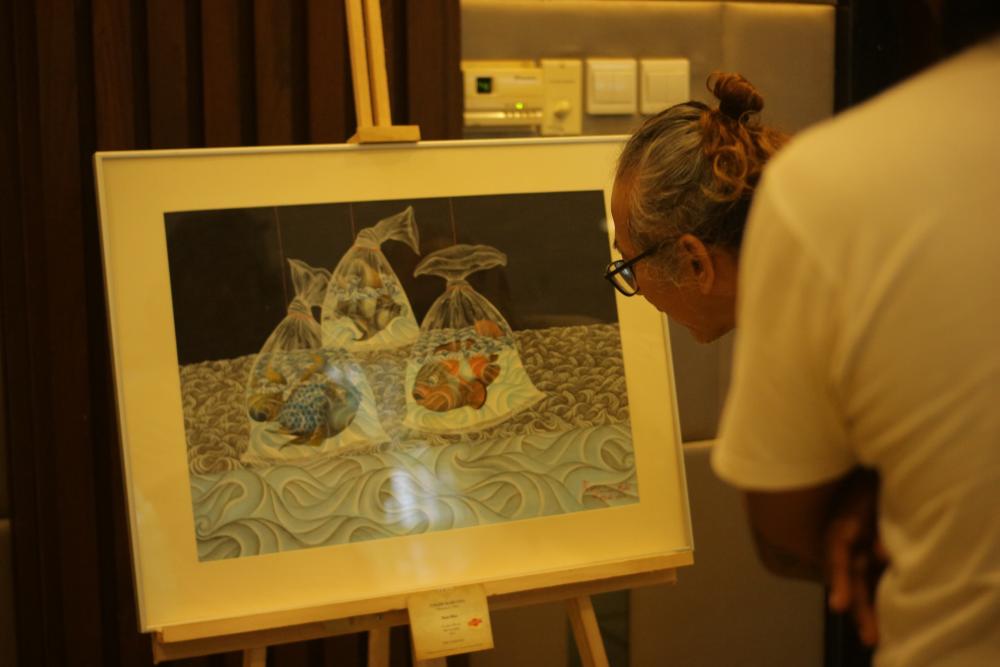'Loloh Kayu Manis', Traditional Balinese herbal drink

Denpasar, NetizenBali.com - Every time Kris has a sore throat, she picks some kayumanis leaves from her backyard garden in Buleleng and makes a concoction with them. She mixes the leaves with water and a sprinkle of salt, squeezing until the leaves yield a thick, dark green extract and drinks this in the morning before meals. This traditional beverage always works wonders for her, relieving fevers and inflammation in her throat.
For generations, the Balinese people have turned to loloh, the local name for traditional herbal drinks commonly called 'jamu' in Indonesia. 'Loloh' have also been written about in the ancient Taru Pramana lontar manuscript that talks about plant- based medicines. According to myths, the plants could talk and disclose their efficacies, so that humans would be able to make concoctions out of them to prevent and treat different ailments.
.jpg)
'Kayumanis' leaves, also known as 'katuk', are called the green multivitamin by the US Agriculture Department due to their rich vitamin content. In Thailand, the leaves are used to make soup, mixed with other vegetables or cooked with meat and coconut milk.
This plant is easily found in Southeast Asia. It is called star gooseberry in English, 'phak waan baan' in Thailand, 'cekur manis' in Malaysia, 'binahian' in Filipina and 'dom nghob' in Cambodia.
In fact, it is one of the most popular leaves in Southeast Asia due to its high level of calcium, known to be able to prevent osteoporosis, as well as being a good source of iron. It is also believed to improve the flow of breast milk and to relieve influenza. It allegedly can also improve cell growth, strengthen the immune system, prevent eye disease and has the ability to stimulate and improve the quality of reproductive hormones.
.jpg)

In addition to 'loloh kayumanis', other popular herbal drinks in Bali are 'loloh cemcem' and 'loloh kunyit'. 'Loloh cemcem' was introduced in Penglipuran village in Bangli and is made of 'cemcem' or 'kloncing' leaves with salt, sugar, honey and coconut slices. It tastes a little bit spicy, salty and sweet, but is refreshing and improves the digestive system and decreases blood pressure. [This words was taken from weekly newspaper Bali Buzz-The Jakarta Post]












Related Articles
- Kuliner Laut yang Memikat di Restoran Ta Chalkina Yunani
- Menghindari Sial, 7 Makanan yang Harus Dihindari Saat Perayaan Imlek
- Durian lovers, rejoice! Jembrana offers the best of the “King of Fruits”
- Pantai Yeh Leh: Memburu Rumput Laut Sebagai Pangan Sederhana
- Babi Guling, completely non halal in Bali